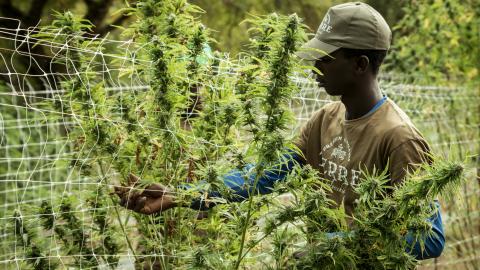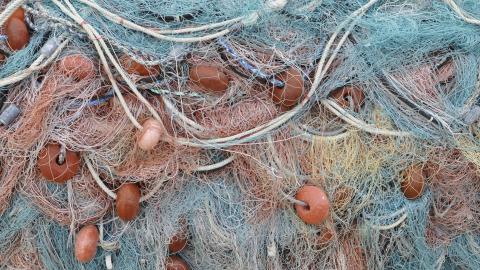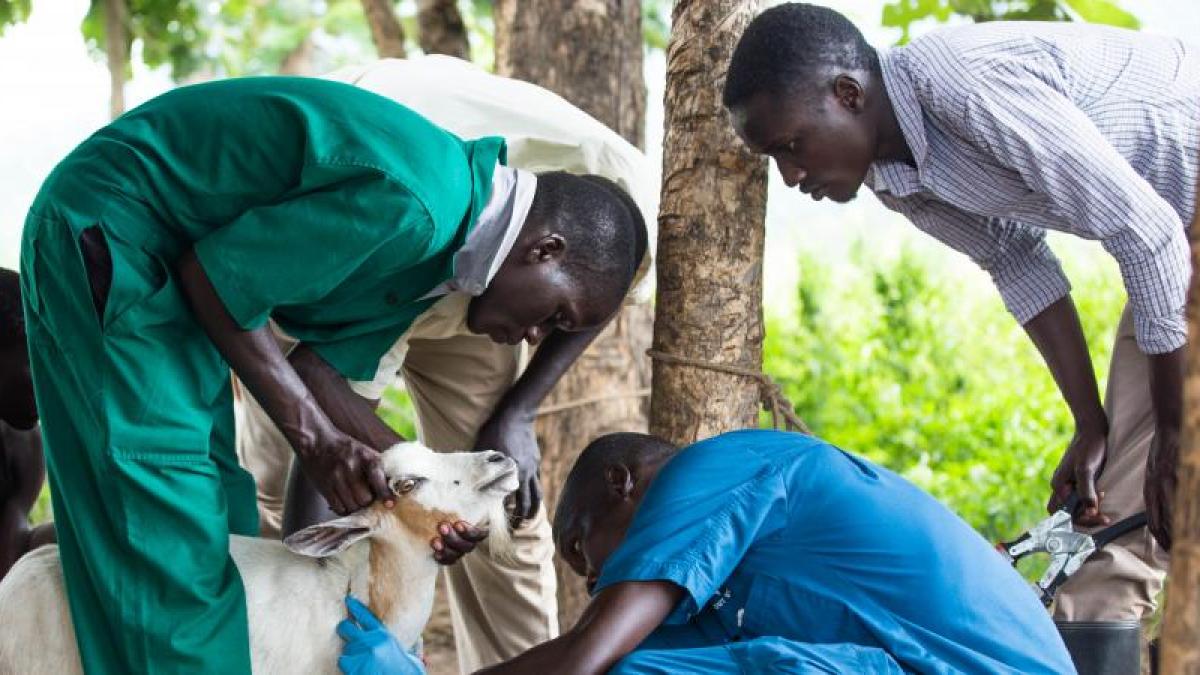
September 23, 2016
Northwest Center Trainee is Studying the Occupational Health of Ugandan Livestock Farmers
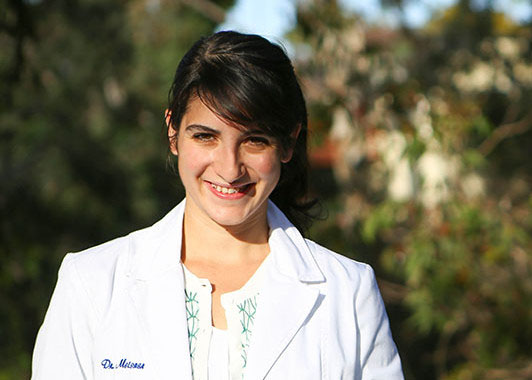 Julianne Meisner is a veterinarian getting her MPH at the University of Washington Department of Environmental and Occupational Health Sciences, and is an Occupational Health at the Human-AnimalInterface (OHHAI) Training Scholar. Her practicum rotation has her looking at the occupational health of livestock farmers in Uganda.
Julianne Meisner is a veterinarian getting her MPH at the University of Washington Department of Environmental and Occupational Health Sciences, and is an Occupational Health at the Human-AnimalInterface (OHHAI) Training Scholar. Her practicum rotation has her looking at the occupational health of livestock farmers in Uganda.
The OHHAI program supports a small number of funded scholars in the development of competencies for research and provision of preventive occupational health services to workers in a wide range of animal contact settings including research facilities, veterinary hospitals, zoos, and agriculture from a One Health perspective. OHHAI Scholars complete the requirements for the MPH in Environmental and Occupational Health as well as coursework in zoonotic infectious disease and One Health.
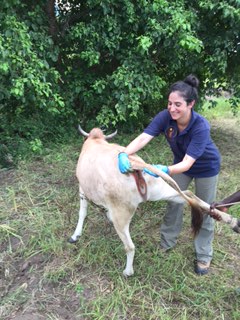 Julianne’s field work in Uganda during the summer of 2016 had two objectives: (1) to assist in ongoing sampling for the Neglected Zoonotic Diseases in Uganda Study, which Veterinarians Without Borders has been implementing for over two years, and (2) to develop and implement the Uganda Animal Worker Health Survey.
Julianne’s field work in Uganda during the summer of 2016 had two objectives: (1) to assist in ongoing sampling for the Neglected Zoonotic Diseases in Uganda Study, which Veterinarians Without Borders has been implementing for over two years, and (2) to develop and implement the Uganda Animal Worker Health Survey.
The Neglected Zoonotic Diseases in Uganda Study study gathers survey data on household practices relevant to zoonotic disease transmission and samples human household members and their animals (cattle, sheep, goats, and pigs) for neglected zoonoses.
“We (myself, the Center for One Health Research faculty and staff, and Dr. Thomas Graham of Veterinarians Without Borders) developed the Animal Worker Health Survey earlier this year, and this summer I implemented it alongside of the zoonotic disease survey” said Julianne.
“Livestock agriculture in Africa, like most of the world, is trending towards more intensified production systems and away from traditional systems. While there is an ongoing debate as to the costs and benefits of this change, little attention has been paid to the occupational risks associated with traditional livestock keeping systems.”
The Animal Worker Health Survey collects data on delegation of livestock-associated tasks within households, hygiene practices associated with livestock work, frequency and nature of exposure to potentially infectious material, animal-related injury history, and potential risk factors for injury such as the keeping of uncastrated (intact) male animals.
Not only is Julianne an impressive scholar, but she is also an outstanding photographer. When she isn't busy with her research she is taking beautiful photos of her travels, which she shares on her travel photography website, juliannemeisner.com!


